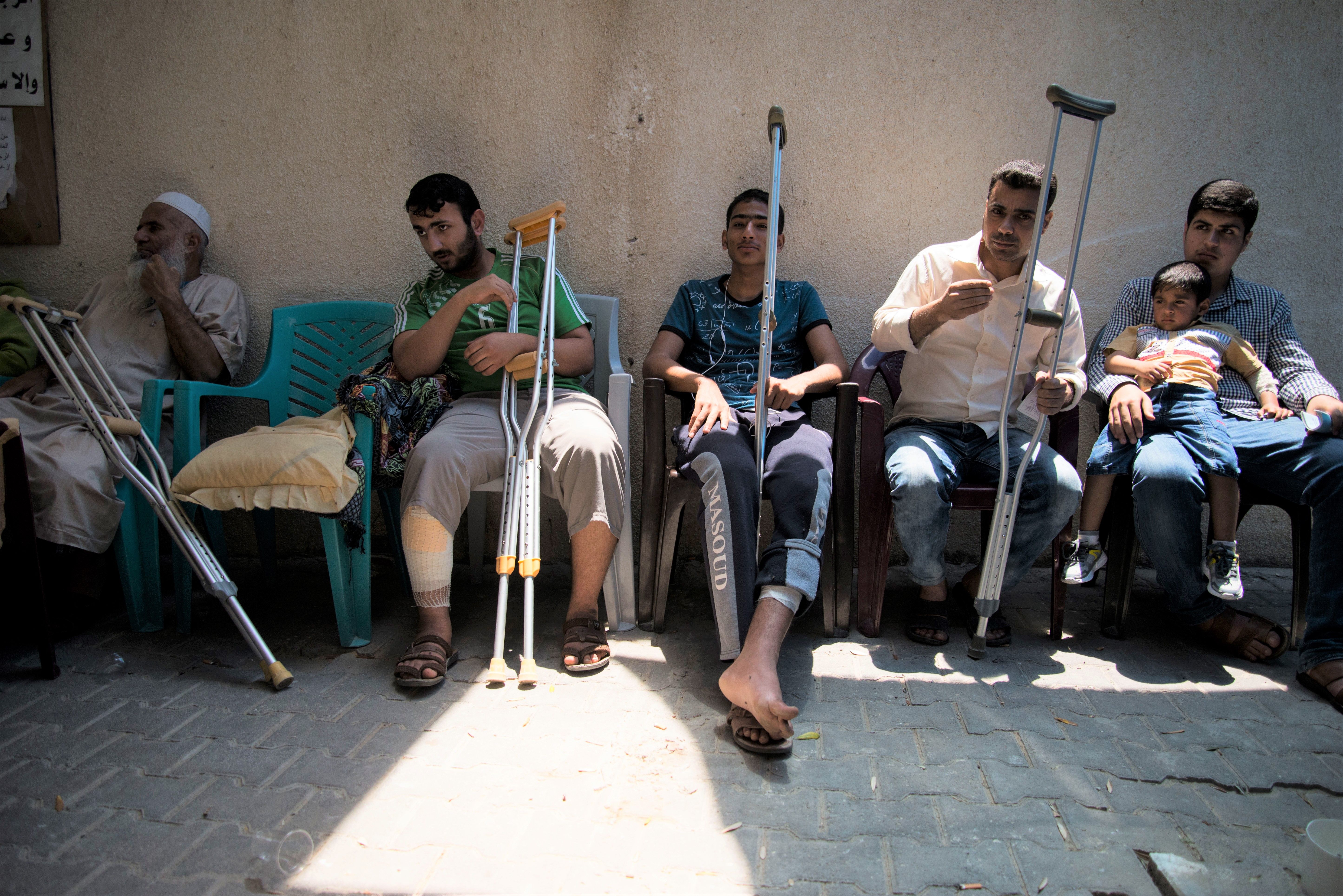Under blockade and in isolation: Treating Gaza’s infections
MSF is dealing with immense challenges while treating many people who have developed bone infections after having been shot by the Israeli army during protests in Gaza over the last year. These infections are adding to the already complicated path to recovery that these injured must tread. Their serious and complex wounds require months – if not years – of dressing, surgery and physiotherapy. Infections prevent recovery, and to make matters worse, many of them are resistant to antibiotics.
According to MSF, more than one thousand people in Gaza are suffering from severe bone infections developed in the aftermath of being shot by the Israeli army. The demonstrations in which they were shot have been taking place for more than a year now, a weekly routine of bloodshed. More than 7,400 Palestinians have been injured by live ammunition, with around half suffering from open fractures, where the bone is broken near the wound.
“When you have an open fracture, you need lots of things to get better: different types of surgery, physiotherapy, and avoiding the wound becoming infected, which is a high risk with these types of injuries,” explains Aulio Castillo, MSF’s Medical Team Leader in Gaza. “Unfortunately, for many of our patients who have been shot, the severity and complexity of their wounds – combined with the severe shortage of treatments for them in Gaza – means they have now developed chronic infections. What’s more, we’re finding in preliminary testing that many of these people are infected with antibiotic resistant bacteria.”
Gunshot wounds by their very nature are prone to infection. With a dirty foreign body breaking the skin, it is vital that the wound be cleaned to lessen the risk of infection. With injuries such as those in Gaza, where the wounds are huge, bones are splintered, and difficult treatment means many wounds stay open long after the injury, the risk of infection is drastically higher. Complicating this is what appear to be very high rates of antibiotic resistant infections there. These infections have developed an ability to withstand many common antibiotics used to treat them. This often happens because antibiotics have been overused, whether in the community or in the environment, which is a growing problem worldwide.
A painful experience for isolated patients
While patients in isolation are not confined – they can leave the room if they wear protective gowns – it is only natural that the experience is extremely difficult. “After people hear that they must be in isolation they are shocked – they can even start crying,” says Amal Abed, a social worker. “They don’t understand – they think that infection in the bones means certain amputation.” The psychosocial support team takes the time to sit with the patients, to explain their condition to them, and why it is important they follow the precautions.
They also try to create connections between the different patients in isolation, to keep their mood up. “We have to follow the precautions, but we like to get them out of the room to sing, dance, to do an educational session with them and other patients,” Amal explains. “It’s more interesting when education is not done alone: other people can join in with their comments, start a conversation.”
A laboratory for bones samples
Treating these infections would be tough anywhere in the world, but in Gaza it is even tougher. With a health system reeling from the effects of more than a decade of Israeli blockade, Palestinian political in-fighting and Egyptian restrictions on movement, MSF is working to provide care that is otherwise unavailable. “We have worked with the Ministry of Health to upgrade a laboratory so that it can analyse bone samples, a crucial part of diagnosing correctly these bone infections and knowing which antibiotics will work,” says Aulio, the Medical Team Leader. It is the first laboratory able to analyse bone samples in Gaza: previously, each sample had to be sent to labs in Israel for testing.
“Treating these infections is a massive undertaking,” says Aulio. “We have upgraded this laboratory, opened two hospital wards and are opening another. It places huge demands on us in terms of the specialist staff we need, the drugs we have to supply and the space we need in order to treat these infections. It’s hard but we’re trying our best to offer these people the surgery and treatment they need.”
Copyright Photo: Aurelie Baumel/MSF
.jpg)
.JPG)
.JPG)